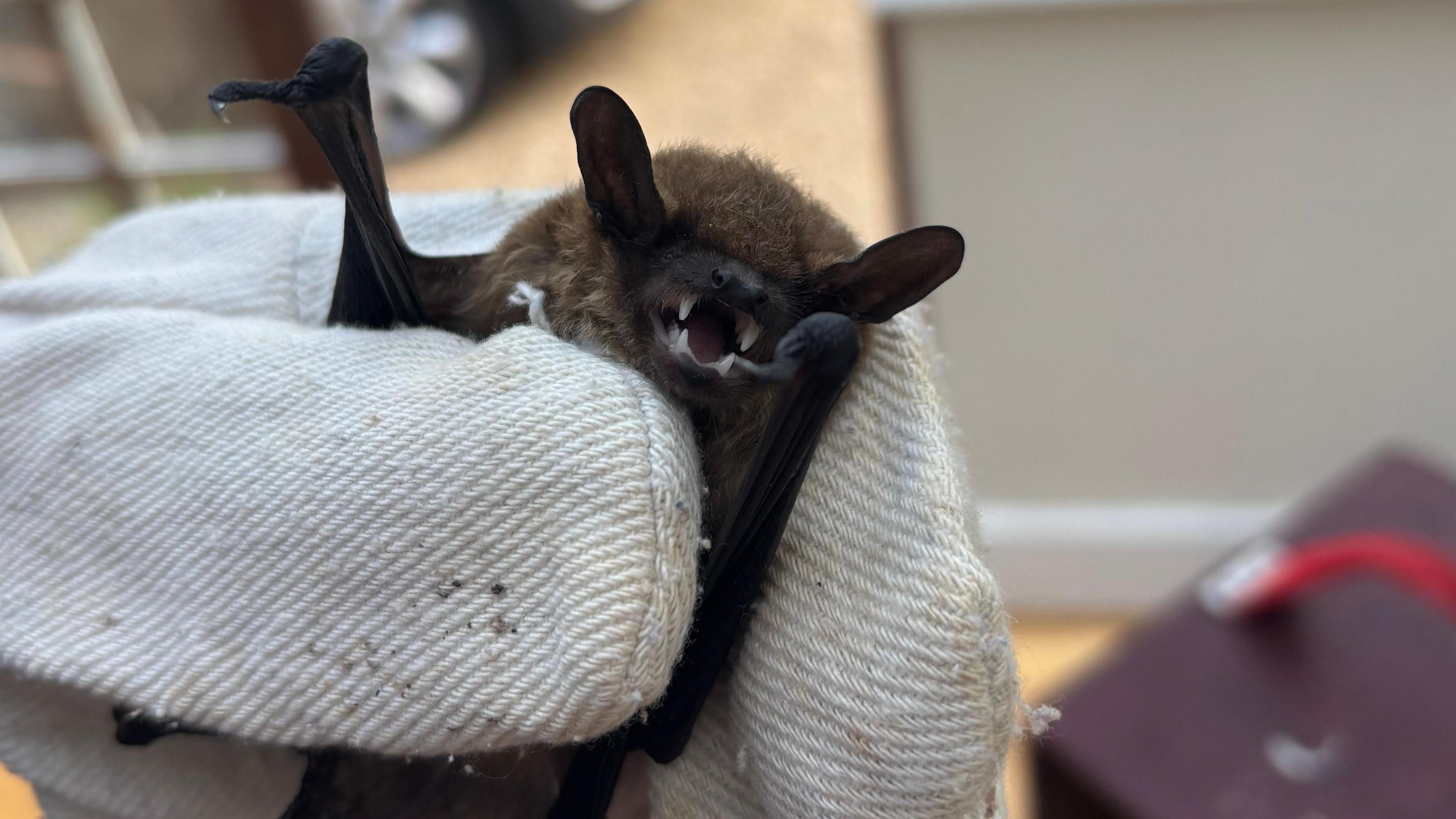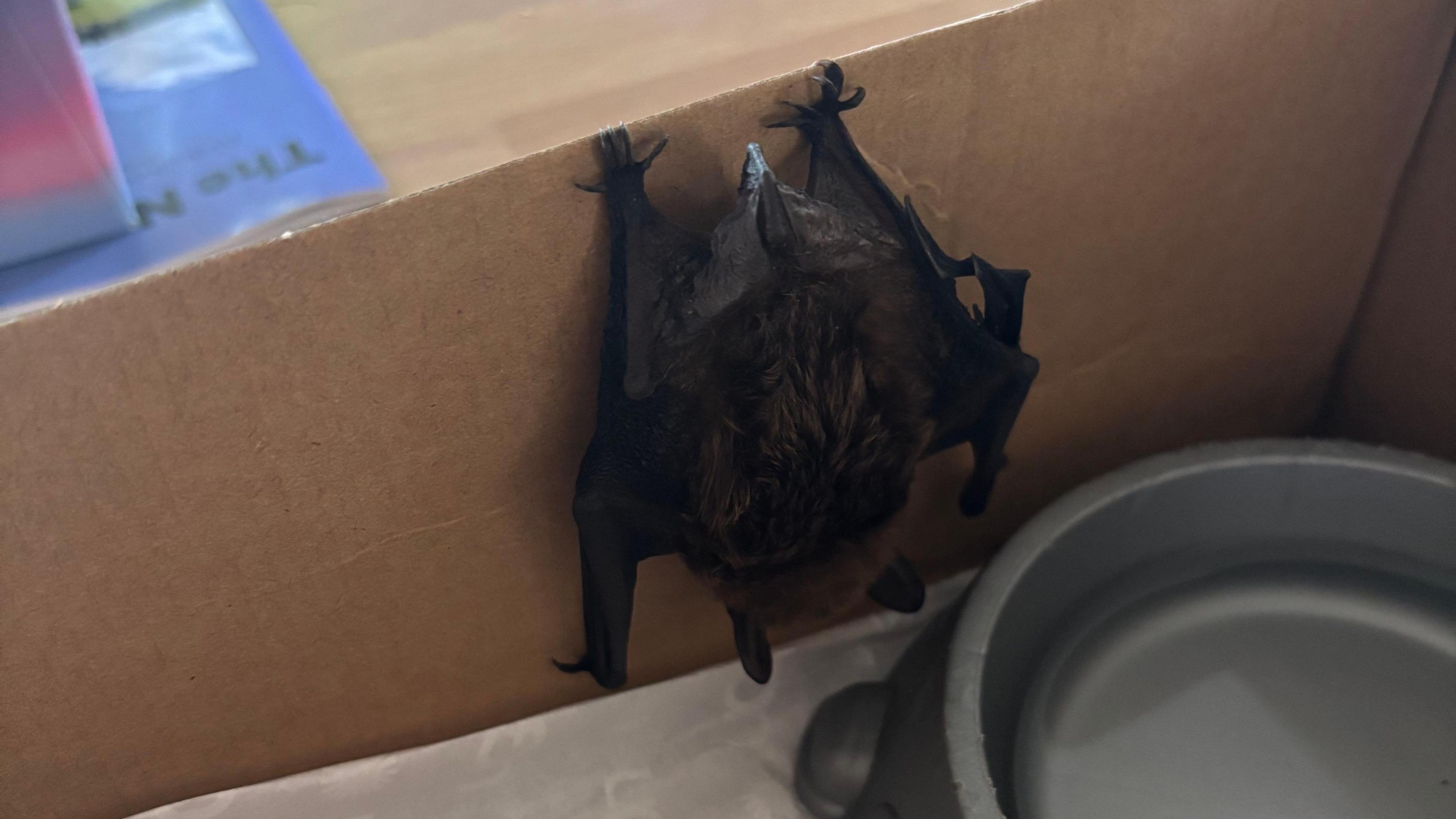Rare rabies-like virus found in island bat

The animal was found in Shorwell on the Isle of Wight
- Published
An injured bat that was rescued from a back garden turned out to have an extremely rare, rabies-like virus, the Department for Environment and Rural Affairs has said.
The animal was found earlier this month in Shorwell on the Isle of Wight.
The resident picked it up wearing gloves and kept it in a shoebox overnight, while waiting for it to be collected by volunteers from Isle of Wight Bat Hospital.
Department for Environment and Rural Affairs (Defra) said the bat was later found to have a virus that caused rabies, known as European Bat Lyssavirus-1 (EBLV-1) - but Defra said other mammals were not considered to be at risk.
Animal, Plant and Health Agency (APHA) said it investigated and found no scratches or bites to humans or animals.
There are two types of viruses that cause rabies carried in bats in the UK - EBLV-1 and EBLV-2.
Both are extremely rare in the UK and their presence does not change the UK's status as a rabies-free country, according to Defra.

The injured bat was kept in a shoebox before being collected by volunteers from Isle of Wight Bat Hospital
EBLVs cause the rabies disease but they are not the classical rabies virus associated with dogs and responsible for most rabies cases worldwide, according to the Bat Conservation Trust.
Alex Morss, from the trust, said: "Rabies-related viruses have only ever been recorded in less than 0.3% of all bats tested since 1986 (59 bats of 19,000 tested), and in only two of the 18 bat species present in the UK, the serotine bat and the Daubenton's bat."
She added: "There have only been two recorded cases of rabies viruses from an infected wild British animal in a human in Britain since records began - One case was in 1902, the other case was in 2002."
European Bat Lyssavirus-1 (EBLV-1) has been detected in Serotine bats since 2018, with the first case being found in Dorset, according to APHA.
As of May 2024, 34 cases of EBLV-1 had been reported in the UK, according to research from the University of Surrey and APHA. , external
Legally protected
Ms Morss said anyone who suspected they had been licked, bitten or scratched by a bat should contact the National Bat Helpline - 0345 1300 228 - and seek immediate medical assistance.
Vaccinations provided soon after exposure are 100% effective in preventing the disease, according to the NHS.
"There is no risk to human health if you do not handle British bats, even if they are roosting in buildings you use, Ms Morss said.
"No action should be taken to disturb or harm any wild bats or their roosts.
"Bats are non-aggressive, shy mammals and will avoid contact with humans."
All 18 British bat species and their roosts are legally protected.
Ms Morss said bats should only ever be handled by a person with a licence and after appropriate training, unless a bat in distress is being rescued, in which case thick gloves and a face mask or covering should be worn.
- Published18 June

- Published20 June

- Published13 June 2012